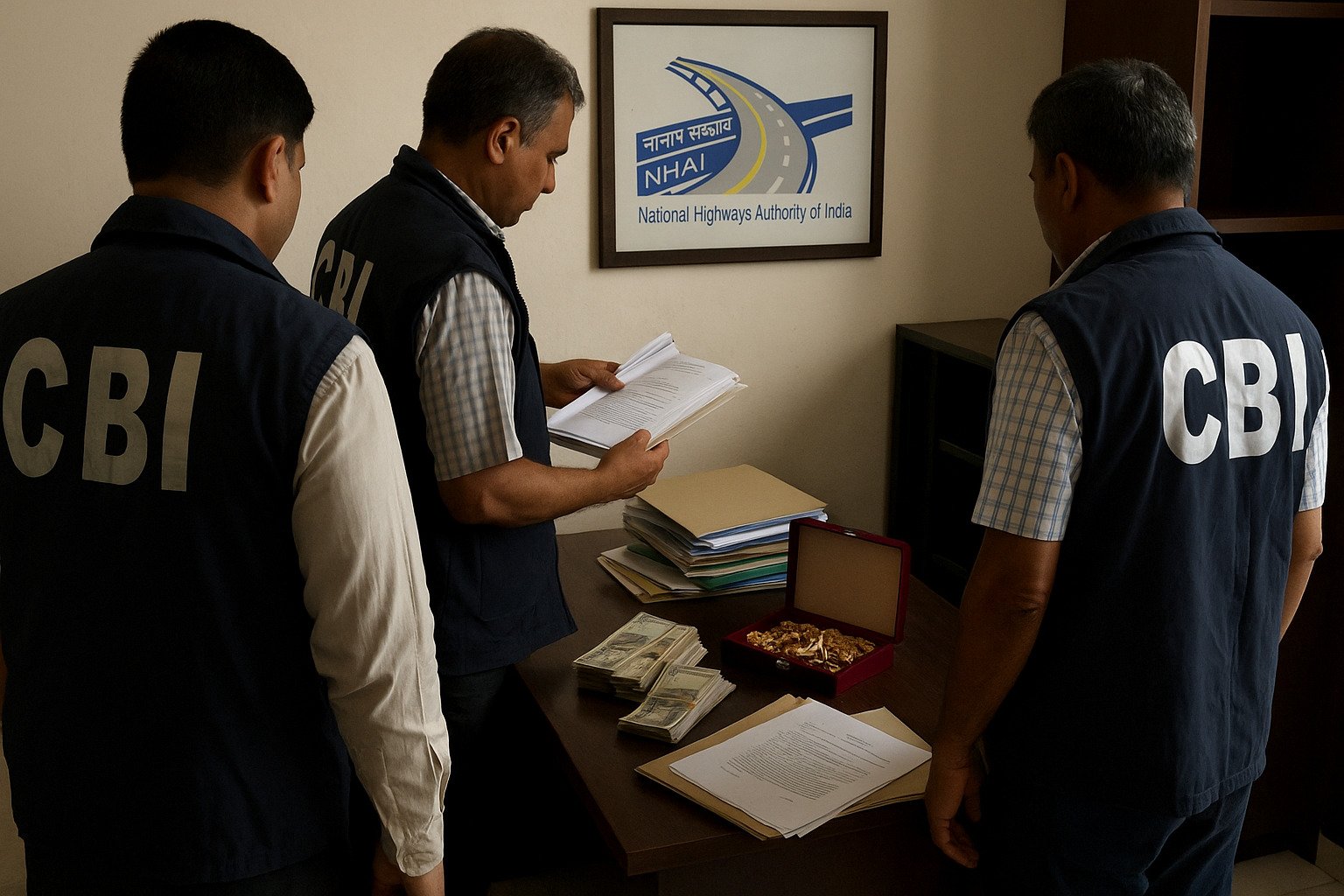Mumbai – The Central Bureau of Investigation (CBI) has booked A. Kale, former General Manager and Project Director of the National Highways Authority of India (NHAI), for allegedly amassing disproportionate assets worth ₹1.56 crore during his tenure in Nagpur. The assets, including cash, jewelry, and immovable properties, are said to be vastly in excess of his known sources of income.
Assets Accumulated Within Two Years
According to CBI officials, Kale served in Nagpur from April 2022 to March 2024 under the NHAI, which functions under the Union Ministry of Road Transport and Highways. Before joining NHAI, Kale began his career as an Assistant Engineer at the Maharashtra Industrial Development Corporation (MIDC). Investigators allege that during his two-year posting, he accepted bribes from contractors and built up substantial wealth through illicit means.
Previously Accused of Bribery
The CBI noted that on March 3, 2024, Kale and several associates were earlier booked in a separate case for accepting bribes from NHAI contractors. In the latest case, Kale faces charges under the Prevention of Corruption Act for abuse of official position and illicit self-enrichment during his service.
Cash and Jewelry Recovered from Residence
During searches at Kale’s residence and other premises, the CBI reportedly recovered incriminating documents, property records, valuable jewelry, and ₹42.5 lakh in cash from his locker. Investigators found several properties registered in the names of Kale and his family members, all believed to have been acquired using illicit funds.
Probe into Source of Wealth Continues
Officials said that further investigation is underway to trace the origin of the funds, identify potential accomplices, and determine the full extent of assets accumulated through corruption.
A senior CBI officer stated-
“Preliminary findings suggest clear misuse of official position for personal gain. The next phase of the investigation will focus on the money trail and possible laundering of these illicit assets.”
The case once again underscores the persistent problem of corruption within public infrastructure projects, where misuse of authority continues to enable massive illicit enrichment.



